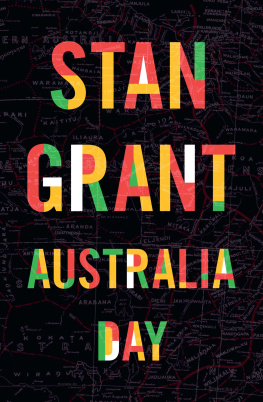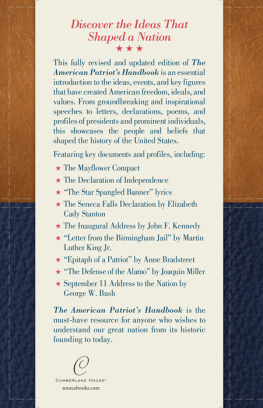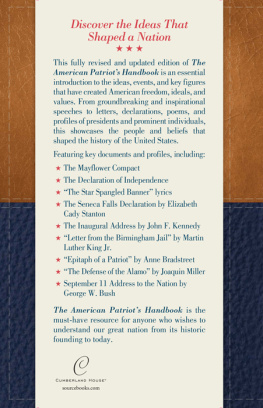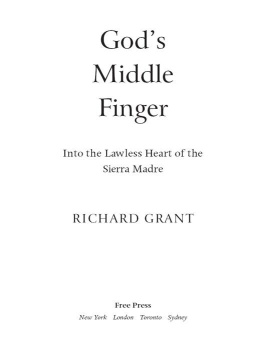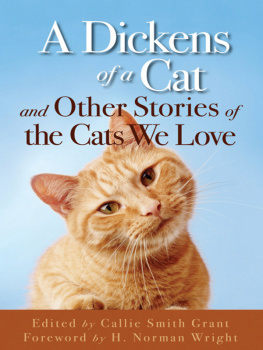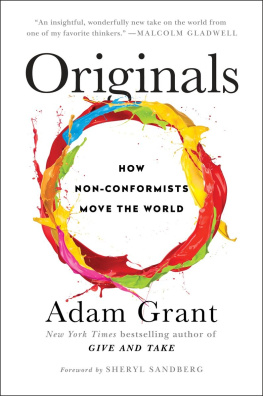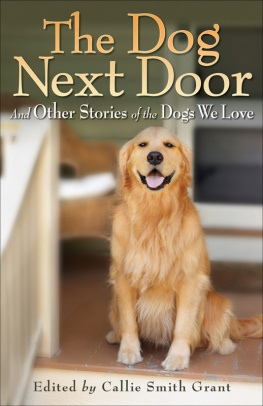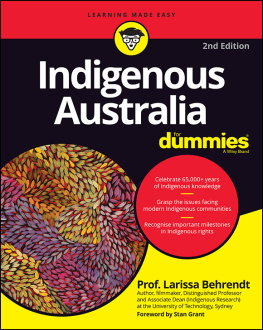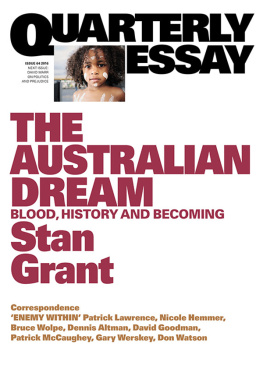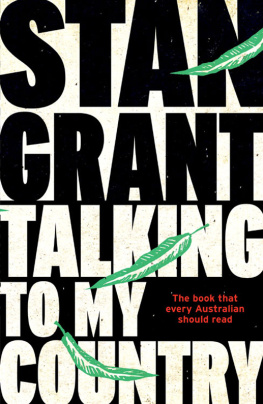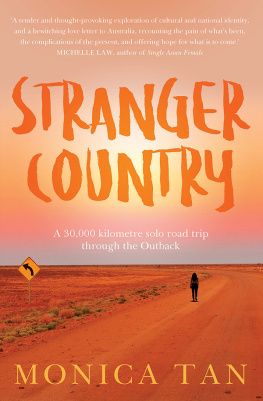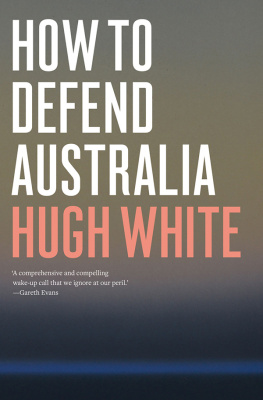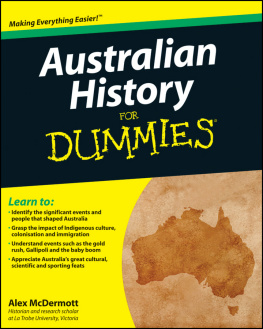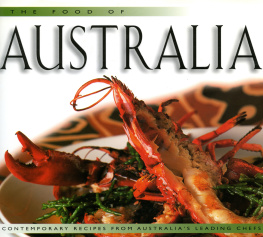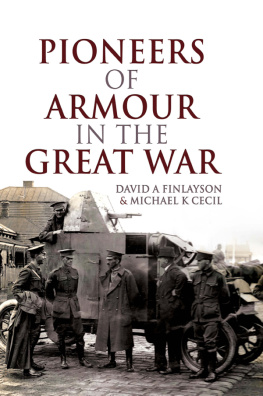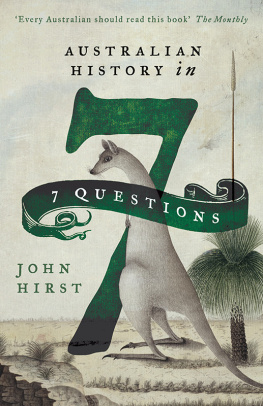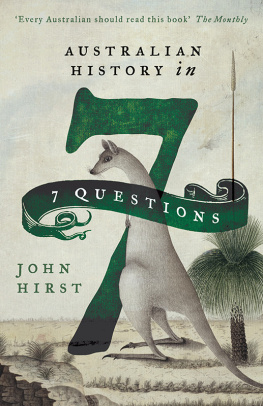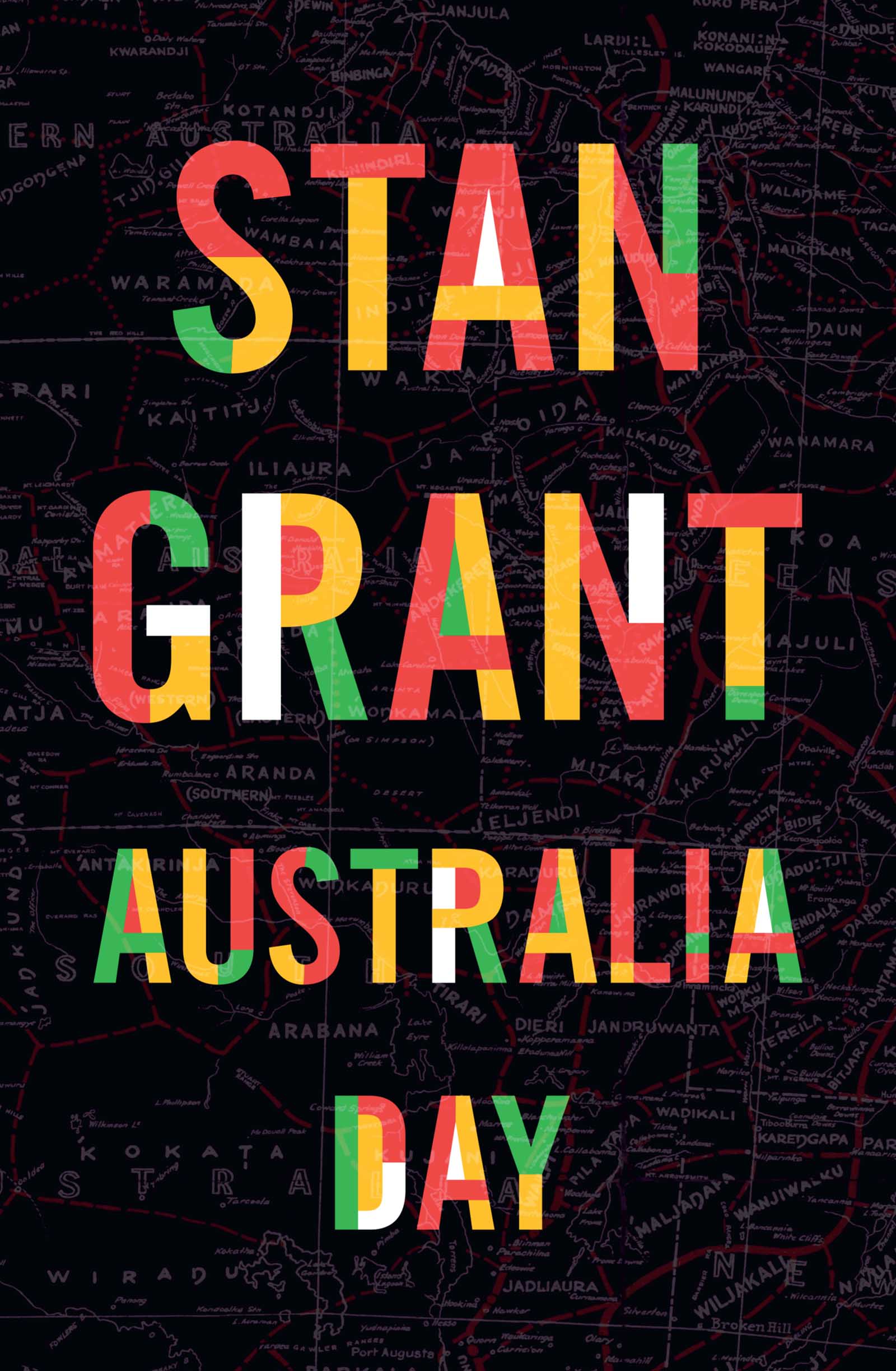CONTENTS
Guide

To Lowanna, John, Dylan, Jesse my children.
This country and this world are yours.
I say we have a bitter heritage,
but that is not to run it down.
Randolph Stow, Tourmaline
CONTENTS
I n 2016 I took my youngest son through the law: the burrbang. That is what my Wiradjuri ancestors called initiation a coming of age when a boy would leave childhood to become a man. Once my sons body would have been ritually scarred as old men unlocked ancient secrets. But I took him on another journey a journey into the secrets of Australia. I told him stories that we dont tell stories of the Great Australian Silence. We took a road trip back to the country of my ancestors, we passed its fields, its rocks, its rivers and streams. I had been away from Australia for many years. It was a refuge I suppose, I needed to breathe this place can bear down hard. But now I was home, with my son, and I needed answers to questions that I had carried with me for a lifetime.
That journey became a book, Talking to My Country. I wrote it as Australia was again torn apart by race. Each week football fans booed and hounded the Indigenous AFL player, Adam Goodes, until he walked away from a game he had loved. I wanted to tell Australia how this country could make us feel; how it could lay us so low. As I wrote then, Australias wounds rest deep and uneasily in our soul. I am the sum of many things, but I am all history.
In the years since I have wondered about that: is that true am I bound forever to my history? Is this my sons inheritance? This is what I try to answer now. This book is my attempt to break free. What is it to be Australian? I look at land, family, race, history and nation five things that go to my identity. This book is drawn from a collection of speeches and essays particularly the Quarterly Essay The Australian Dream: Blood, History and Becoming, published by Black Inc. but I have taken the licence to play around with them, join the dots and clarify some of my thoughts. Together they are a window onto my country and myself. These past years I have changed and my country has changed but I ask that same question: who are we?
I am Australian. There is no other place on earth from where I could come. Think about that: I could only have been created here. The history of this land runs through my veins. I am old and I am new. My bloodline connects me to the first footprints on this continent. Two million sunrises have put me here.
My name Grant was shipped here in chains. John Grant, an Irish rebel just a boy really banished forever from his home, transported to this penal colony. He would never touch the soil of Tipperary again; he lies in a field under a headstone in the rich plains west of the Blue Mountains in New South Wales.
He left behind a new family: not just Aboriginal and no longer Irish, but something entirely new. We imagine that history rises and falls; we mark time by beginnings and endings. The arrival of Europeans on these shores was not the end for my Aboriginal ancestors or I wouldnt be here. I also carry Ireland deep in me, enough to feel Id come home when I first walked the streets of Belfast. Thats how history works; we dont move in straight lines, we weave in and out of each other. We sail our ships and find new worlds. As novelist Richard Flanagan says, We our histories, our souls are... in a process of constant decomposition and reinvention. This is becoming; this is what we do, humans. We are on a never-ending journey towards each other. We are strangers and then we are family. Before we even called this place Australia, an Australian family my family was born.
This is my history. It lives in me.
Australia is the name we give this place, but what is in a name? Nothing really... and yet everything. People have died for this place we name Australia. This is what we have built, all of us, and it is precious. It exists in us. We carry it in our stories. Thats what matters: story. A nation is nothing if not a story: memories and history.
I am Australian. I have Australian memories: sun-scorched days at the pool; sticky orange ice blocks; backyard cricket; broken bicycle chains; hot chips and vinegar; warm milk at recess; inkwells; wet woollen jumpers; frost-cracked fingers.
I am Australian. I have Australian history: Captain Cook; the First Fleet; convicts; Blaxland, Lawson and Wentworth; Burke and Wills; Merino sheep; the Gold Rush; Gallipoli; the Great Depression; Menzies and Gough.
I am Australian and I have other memories. Australian memories: a dirt road on the outskirts of town; mangy dogs and broken glass; my fathers wounds; my mothers poems of stolen kids and welfare men; too many funerals.
I am Australian and I have another history. An Australian history: Bennelong, Pemulwuy and Windradyne, who met the British on the frontier, fought, forged friendships, made peace; Truganini and the black line in Tasmania; the Appin massacre; martial law in Bathurst; segregated missions; the Day of Mourning; no blacks allowed and the Freedom Ride.
This is me. All of it. We are all of this. It just is.
But then, it isnt. Now it feels like a battleground. It is as if this day Australia Day must pit my ancestors white and black in some conflict without end. It is a fight with myself; I cant possibly win. What am I supposed to forget? What part of my story am I expected to embrace and what part do I reject?
In A Poison Tree, William Blake wrote:
I was angry with my friend;
I told my wrath, my wrath did end.
I was angry with my foe:
I told it not, my wrath did grow.
I wonder, would he write those words today? What would Blake think of social media, where our voices are amplified, yet our anger grows. What was meant to bring us together is more often a star chamber where people are put on trial by nameless, faceless trolls. It has become a battleground for ever more strident identities.
We prize identity more than citizenship. We look to what divides us; define ourselves in opposition to each other. This is an age of grievance, and grievance is a demoralising basis for identity. It is a contest of wounds; a contest in which there can be no winner. Wounds are trumps. At its worst, these singular identities tear the world apart. This is the world I have seen; a world that straddles dangerous fault lines of race, history, religion, ideology. We never learn, it is like we are hardwired for this; we form our tribes and we go to war.
Today, we call this the politics of identity and it is among the great perils of our time. This is identity that breeds in the swamplands of history; history as betrayal; a narrative of loss and inheritance robbed. It is history told from the losing end. It is feeding the resurgence of global populism, from Donald Trumps Make America Great Again to Vladimir Putins lament for the Soviet empire or Xi Jinpings reminder to the Chinese people of the hundred years of humiliation by foreign powers; and it laps against our shores too.
It has been said that looking at history takes ones breath away. I admit to the choking feeling of living with the burden of the past. As an Indigenous Australian I have felt torn between embracing and celebrating all that is great in our nation, living with the all too painful reality that it is not so great for everyone; and that my family, like so many other Indigenous families, has paid a terrible price for the greatness of Australia. For too long the worst of our history was denied or silenced. But no longer. As uncomfortable as it is, we are reckoning with our history. On 26 January, no Australian can really look away.

